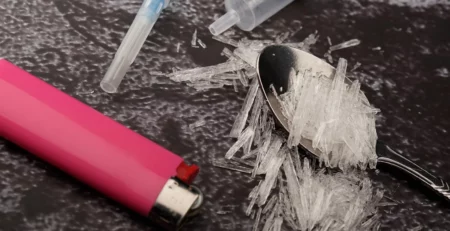How Long Does It Take to Become an Alcoholic?
Detailing the Progression of an Alcohol Use Disorder
Do you have a problem with alcohol and are concerned about becoming an alcoholic? Some people take years to get hooked on alcohol, but others seem to get addicted from their first sip. In this blog, we look at why this is and find answers to how long does it take to become an alcoholic?
Whether you’re someone who drinks heavily and wants to know about where ‘the line’ is or have a loved one you think may be nearing an alcohol addiction, we are here with answers and support.
Remember that alcoholism is a progressive illness that can bring you to your knees quickly and that trying to stop drinking on your own can be quite dangerous, and even fatal.
Keep reading for more information on the development of alcoholism, and also find out about our effective programs for treatment at Icarus Behavioral Health Nevada now!
The Journey to Alcohol Addiction: Understanding the Timeline

It is no secret that alcoholism has become a major global health concern in recent years, and the statistics are staggering. According to one survey, nearly 10% of all adults worldwide suffer from problem drinking – making it an increasingly pressing issue for both individuals and public health organizations alike.
But what exactly is alcoholism and how long does it take to become an alcoholic? How exactly does someone become an alcoholic? Is alcohol a drug, and if, so how is problem drinking defined?
Understanding these key questions can help prevent alcohol addiction before it starts and provide insight into why and how people become dependent on alcohol.
24 Hour Alcohol Detox and Rehab Hotline – Call Now!
Understanding Alcoholism: How Long Does it Take to Become an Alcoholic?
Alcoholism or alcohol use disorder can be defined as a chronic brain disease characterized by compulsive drinking, increasing tolerance, and strong cravings for alcohol. It differs from casual drinking in that it is associated with significant physical and psychological dependence on alcohol, which often causes people to prioritize drinking even when it has serious consequences on their health, relationships, and other aspects of life.
A Path That Arrives at an Unwelcome Destination: Alcoholism

How long does it take someone to become an alcoholic? The answer to this question is not always straightforward, as the timeline for alcohol dependence can vary greatly from individual to individual.
Generally speaking, there are four distinct stages of alcoholism. We explore these here. Note that the length of time that each of these stages last is not fixed, so gauging the exact amount of time that it takes to become an alcoholic is not possible.
1) Initial Consumption: When You First Consume Alcohol
Initial consumption is the first stage of alcoholism and involves beginning alcohol consumption. At this point, a person may be drinking recreationally or simply trying out alcohol for the first time. While occasional binge drinking can be normal at this stage, it is important to recognize when occasional consumption becomes habitual and frequent.
For example, if someone finds themselves regularly using alcohol as a coping mechanism or needing to drink more and more in order to achieve the same effect, this could signal a move towards problem drinking.
Early Red Flags When Drinking
Further warning signs include turning to alcohol as soon as possible after waking up or feeling the need to increase the amount drunk per session. In addition, if someone is experiencing negative consequences from drinking such as blackouts, hangovers, or arguments with family or friends, this could be an indication of a more serious underlying issue.
This stage of alcoholism can last many years before it develops to the next stage, though some people who have severe trauma or mental health problems such as depression that drives their drinking, may move to the next stage far quicker. It is therefore important to be aware of the signs and symptoms of problem drinking in order to prevent it. If caught early enough, it is often possible to reverse the damage done and identify healthier coping mechanisms.
24 Hour Detox and Rehab Hotline – Call Now!
2) Increased Drinking and Binge Drinking
The second stage of alcoholism is increased drinking, which involves far more alcohol being consumed. At this point, people may find themselves drinking more and more often in order to achieve the desired effect. This can be seen as their tolerance increases and they require larger amounts of alcohol to get drunk.
At this stage, a person may experience problems with work or school but continue drinking and find themselves making excuses or avoiding responsibility for their actions. They can also become increasingly reliant on alcohol to cope with everyday life and eventually find that drinking alcohol takes over some of their thoughts.
Risky Behaviors and Consequences Begin to Mount
Furthermore, they may begin to drink in unsafe situations such as when driving, taking risks they would not normally take while sober. This can often lead to legal and financial consequences, further exacerbating the problem. If someone is susceptible to trauma, actions taken when drinking, or using alcohol to avoid traumatic memories, can create vicious cycles of PTSD and alcohol consumption.
You should recognize these signs early in order to address the issue before it spirals out of control. Professional addiction treatment help should be sought if any of these symptoms are present as they could potentially indicate a more serious underlying issue.
3) Problem Drinking

The third stage of alcoholism is problem drinking, which involves an even heavier reliance on alcohol. At this point, a person may struggle to stop drinking or find that they are unable to control their consumption.
This can manifest in a variety of ways including binge drinking, blackouts, and hangovers that last for days. A person at this stage will often experience severe cravings and withdrawal symptoms when they try to stop drinking which can be incredibly difficult.
Alcohol Begins to Take Center Stage
They may also find that alcohol has become the primary focus of their life, overshadowing other important aspects such as family, friends, and work. This can lead to a downward spiral of self-destructive behavior that can lead to developing alcohol dependence.
During this stage, excessive drinking may also be accompanied by substance abuse, which can increase the risk of developing serious health problems. Combining substances may also increase the risk of experiencing withdrawal symptoms once dependency has set in.
4) Alcohol Dependence
The fourth and final stage of alcohol use disorders is alcohol dependence, or alcoholism itself, which involves a complete reliance on alcohol. At this point, a person will find themselves unable to function without it and experience severe physical and psychological alcohol withdrawal symptoms when they try to quit. These can result in death.
Alcohol dependence can lead to serious health complications such as liver cirrhosis, heart disease, high blood pressure, memory loss, depression, anxiety, and more.
Those in this stage of alcoholism also often find themselves turning to drinking as a way to escape reality and cope with emotional pain, putting them at risk of further health problems. A person’s Blood alcohol level (BAC) will remain consistently high at this point, but they may be so used to the effects that they are barely perceptibly intoxicated.
With the right support, it is still possible to reduce or stop drinking and make positive changes to your lifestyle that can last a lifetime. If you would like any more information on the stages of alcoholism and our programs for effective alcohol addiction treatment, please contact Icarus Behavioral Health in Nevada today.
Seeking Help for Alcoholism at Icarus Nevada

Seeking help for alcoholism is an important step in overcoming alcohol addiction and reducing the risk of serious health issues. Professional treatment programs such as therapy, medication-assisted treatment, and detox can be incredibly beneficial in helping people to break the cycle of alcohol dependence.
Medically Supervised Alcohol Detox
Alcohol detox is the process of removing all traces of alcohol from your system, and it can often be incredibly difficult. During this time, a person may experience severe withdrawal symptoms such as anxiety, insomnia, nausea, tremors, and more. You need to seek professional help during detox as it can be dangerous to try and do it alone. The more times someone goes through withdrawal, the more dangerous it is.
How long does it take to detox from alcohol? From a few days to a couple of weeks, depending on drinking habits and the number of alcoholic beverages normally consumed.
At Icarus Nevada, we prescribe medication for withdrawal where required. This helps our clients to feel comfortable, and it also ensures that our clients are safe during the alcohol detoxification process.
Get Immediate Help For Alcohol – Reach Out Now!
Inpatient Programs
Inpatient rehab programs provide a safe environment where individuals can focus on recovery without external distractions. They also offer around-the-clock support from medical professionals as well as access to therapy and other therapeutic activities.
Outpatient Programs
Outpatient treatment is another option that allows individuals to continue living at home while attending sessions and following their prescribed treatment plan. This can be beneficial for those with less severe addiction, allowing them to remain in contact with family and friends. Note that our outpatient rehab programs are not typically recommended for someone with a severe alcohol problem.
How Long Does it Take to Become an Alcoholic? Know the Risk Factors

While timeframes vary, certain risk factors can contribute to more readily developing alcohol addiction. Genetic predisposition or a family history of alcohol addiction can increase someone’s likelihood of developing an alcohol abuse disorder. Mental health issues such as anxiety or depression can also increase the risk of developing alcohol addiction.
Finally, the social environment is a huge risk factor for getting addicted to alcohol and developing alcohol dependence, with people more likely to drink heavily if their peers are doing it as well.
Confidential Alcohol Use Assessment – Call Now!
Get Help for Problem Drinking at Icarus Nevada Today
If you are concerned you’re turning into an alcoholic, Icarus Behavioral Health in Las Vegas can help. Our team of experienced professionals offers personalized treatment plans that mean you can quit safely so your alcohol problem doesn’t get worse.
Alcoholism is a progressive illness that results in despair, destitution, and even death. Get support to avoid the damage done by drinking now and reach out today for options at Icarus!











